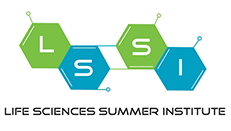The Life Sciences Summer Institute (LSSI) kicks off this month with 36 students starting a summer job at San Diego’s top research companies, 58 teachers going back into the classroom to learn the Amgen Biotech Experience curriculum, and the announcement that an LSSI alumnus has been named a Gates Millennium Scholar.
 The San Diego Workforce Partnership (SDWP), in collaboration with BIOCOM and the Southern California Biotechnology Center at Miramar College, created LSSI in 2005 to strengthen science and math education in San Diego County and to help develop a future workforce for our burgeoning life sciences industry. LSSI connects upper-level high school, as well as high school teachers, with leading San Diego life sciences companies. This year marks the 10th year LSSI has placed students in positions at San Diego’s top institutions.
The San Diego Workforce Partnership (SDWP), in collaboration with BIOCOM and the Southern California Biotechnology Center at Miramar College, created LSSI in 2005 to strengthen science and math education in San Diego County and to help develop a future workforce for our burgeoning life sciences industry. LSSI connects upper-level high school, as well as high school teachers, with leading San Diego life sciences companies. This year marks the 10th year LSSI has placed students in positions at San Diego’s top institutions.
More than 320 youth applied for the 40 coveted positions. Positions have been filled at Pfenex, The Scripps Research Institute, Salk Institute, Sanford-Burnham Institute for Medical Research, and the University of California, San Diego (UCSD). The program will run from June 23 through August 15.
The students start their summer experience with a one-week Boot Camp that includes training sessions on biotechnology laboratory skills, safety practices and soft skills. The students receive college credit for the course at both Grossmont and Miramar College.
“Since the moment it began, LSSI has been successful at introducing students to the life sciences and engaging them in a career path,” says Peter Callstrom, SDWP President and CEO. “We are proud of what the students have accomplished, as well as are appreciative of our most-respected life science institutions opening their doors to the students. Without the industry’s support, we would not be able to provide this unique summer opportunity to our region’s youth.”
Raymond Solis, a 2013 LSSI alumnus who interned at The Scripps Research Institute under the direction of Nicholas J. Schork, PhD, is an LSSI success story. He was recently named a Gates Millennium Scholar. The Gates Millennium Scholars (GMS) Program selects 1,000 talented students each year to receive a good-through-graduation scholarship to use at any college or university of their choice.
Established in 1999, the Gates Millennium Scholars Program is funded by a $1.6 billion grant from the Bill & Melinda Gates Foundation. The goal of GMS is to promote academic excellence by providing thousands of outstanding students, who have significant financial need, the opportunity to reach their full potential.
During his tenure with Dr. Schork, Solis worked on developing a research tool via a Web-based portal and showcasing its utility through a full data analysis for stem cell research. He is a graduating senior from High Tech High North County and will be attending UCSD. He is the fourth LSSI alumni to receive the prestigious scholarship.
In addition to student internships, LSSI provides a 12-day professional development program for science teachers, exposing them to a new biotechnology lab curriculum called the Amgen Biotech Experience. Designed by Amgen scientists and educators, the Amgen Biotech Experience offers a solution to prepare more students with the science, technology, engineering and math (STEM) competencies necessary for careers in the modern workforce.
Half-day externships provide teachers with access to biotechnology companies in San Diego. Prior participants include Conatus, Genentech, Illumina, Life Technologies, Pfizer, Pharmatek, Pfenex and Sapphire Energy. At the end of the course, teachers are provided access to equipment and supplies necessary to implement the new curriculum in their classroom. To date, the program has trained more than 180 science teachers across San Diego, Riverside and Orange counties, impacting approximately 37,000 students. This year 21 teachers will participate in the externship program.
In addition, 37 LSSI teacher alumni will return for the three-day LSSI 2.0, a retraining of the updated Amgen Biotech Experience curriculum. The curriculum has been revised to include a new story line about the role of gene cloning in treating diabetes, alignment to the new Common Core State Standards and the Next Generation Science Standards, and improved labs experiments.
